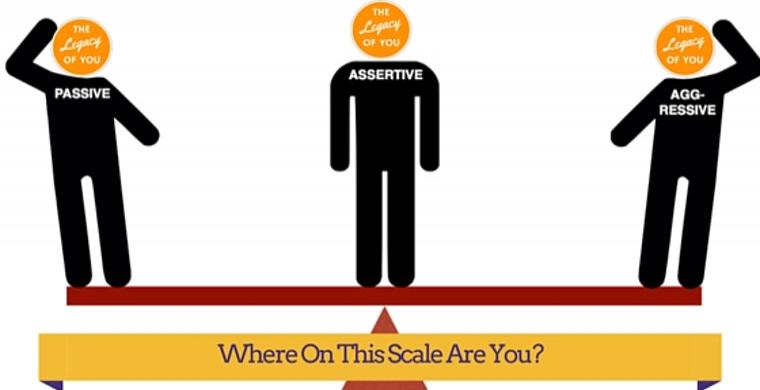Showing assertiveness can be hard. You might not want to speak up for fear that you’ll offend someone or give the wrong answer. Don’t ask other people to do things for you. If you don’t, they might not have your best interests at heart. In this article we explore why being assertive is important and tips to help make it easier!
What Is Assertiveness?

Assertiveness is standing up for yourself without being aggressive. It’s about knowing what you want and making it known in a clear, direct way that works with the other person’s needs too. Assertive people are self-assured but respectful of others’ feelings. They’re able to say no politely or ask for something they need.
Why Is Assertiveness Important?
Assertiveness is a key life skill. It can help you get what you want and need in life, whether that’s at work or in your relationships. Assertive people often have better lives because they’re more confident and happier. They’re also less likely to experience stress or anxiety.
Tips for Being More Assertive
Being more assertive can be difficult, but it’s not impossible. Here are a few tips to help you get started:
- Start with small things. If you’re not used to being assertive, it might be helpful to start with small things. Maybe ask the waiter for a different dish or tell your friends you don’t want to go out clubbing tonight.
- Be clear and direct. When you’re asking for something, be clear and direct in your language. Use “I” statements rather than “you” statements. For example, say “I would like a glass of water” instead of “Can I please have a glass of water?”
- Think about what you want. Before you speak up, take some time to think about what it is that you want or need. This will help make sure that your message is clear and concise.
- Stay calm and positive. When you’re assertive, it’s important to stay calm and positive. Raising your voice or getting angry will only make the situation worse.
- Be prepared for feedback. Not everyone is going to agree with what you have to say. Be prepared for some people to give you feedback that you don’t agree with. Stay respectful and listen to what they have to say.
If all else fails, fake it till you make it! If being more assertive feels like too much of a challenge, try faking it until you feel more confident. Stand up straight, use strong body language, and speak in a clear voice. Over time, these things will help boost your confidence and make it easier to be assertive.
What are some benefits of being assertive?

Some benefits of being assertive include:
- Getting what you want and need in life
- Improved confidence and self-esteem
- Less stress or anxiety
- Better relationships with others.
Being assertive can be hard, but it’s a key life skill that can help you get what you want and need. These tips can help make it easier to start being more assertive in your everyday life. Stay calm, be clear and direct, and think about what you want before speaking up. If all else fails, fake it til you make it! You’ll find that over time, being more assertive will come more naturally to you.
What are some dangers of not asserting yourself?
Some dangers of not being assertive include:
- Not getting what you want and need in life (e.g., a promotion): People might take advantage of you if they know that you won’t speak up. You could feel stressed and anxious because you’re not getting what you need.
- Not having good relationships with others: If people don’t respect your boundaries, it can lead to conflict or stress in a relationship. You might also find yourself putting too much effort into pleasing them without ever feeling like enough has been done for you (e.g., friends who never invite you out).
- Having low self-esteem and confidence: It’s hard to feel confident if you can’t speak up for yourself. You might also struggle with anxiety or depression, which are more common in people who aren’t assertive.
- Feeling anxious or stressed out: Being assertive can help reduce your stress and anxiety levels. If you feel like you’re expected to meet everyone’s needs but yours, it will make you more stressed out and unhappy.
Being passive can lead to some dangerous consequences, such as missing out on opportunities or having difficulty communicating with others. If all else fails, fake it till you make it! You’ll find that over time, asserting yourself will come more naturally to you.
Why are some people not assertive?

Some people might not be assertive because:
- They don’t want to rock the boat or make others angry
- They’re afraid of being rejected or ridiculed
- They don’t know how to ask for what they want in a clear and concise way
- They’ve never been taught how to be assertive
These are some common reasons why people might not be assertive. If this sounds like you, don’t worry! You can learn how to be more assertive with some practice and patience.
What are assertive behaviors?
Many different behaviors can be considered assertive. Some common examples include:
- Speaking up for yourself in a clear and concise way
- Expressing your needs and wants honestly
- Stating your opinions openly and honestly
- Refusing requests or invitations politely but firmly
- Setting boundaries with others, including saying no when you need to
- Standing up for yourself in a respectful way
- These are just some examples of assertive behaviors. The more you practice being assertive, the easier it will get!
Examples of Assertiveness
- Here’s an example of how to be more assertive: “I’m sorry that we can’t make plans this weekend. I have other plans.”
- Here’s an example of a passive way to say the same thing: “Oh, I’m sorry. We can’t hang out this weekend.”
- Another example is if you’re asked to volunteer for something at work and don’t want to do it. You could reply with something like, “I’d be happy to take a look at that and see if I have time to help out.”
It’s a good idea to avoid saying things like “I want” or “I need,” which can come off as too demanding. Instead, try rephrasing your requests more neutrally by using sentences such as “it would be great if…” or “I would appreciate if…”
Here are some more examples of assertive statements:
- “I don’t feel comfortable doing that.”
- “Can you please stop talking to me like that?”
- “I’d like it if we could try something new.”
- “No, I don’t want to do that.”
Being more assertive can feel scary, especially if you’re not used to it. Think about what scares you the most and think of how you could phrase things more assertively.
Assertiveness vs. Aggression

Being assertive is the opposite of being aggressive. Aggressive people are often unkind or disrespectful to others, whereas assertive people focus on making themselves heard without putting other people down.
Assertiveness can also be different than confidence. Being confident means that you’re secure in yourself and your abilities, but it doesn’t mean that you have to speak up when you don’t want to.
Assertiveness is based on balance. You want to be assertive enough so that your needs are heard, but you also don’t want to be too aggressive and end up crossing boundaries. For example, it’s okay to say “no” when someone asks you for a favor that you don’t have time for. It would be going too far if you said no and then started yelling at the person asking you for a favor.
Aggressive behavior is based on winning: When you’re aggressive, you do what is in your own best interest without caring about the rights, needs, feelings, or desires of other people. But when you’re pushy (selfish), people can think that you are bullying them. They might say that they don’t like it and want to spend some time alone.
Conclusion
Although there are many ways to be assertive, the most important thing is that you have a plan. Whether it’s through body language or verbal communication, having an understanding of what your goals are and how best to achieve them will help you stay on track in any situation. What does being more assertive mean for you? Do you need some time alone with your thoughts before speaking up at work? Or do you want to take care of something right now by organizing a meeting with your boss about the subject matter where they’re wrong?
If you are looking for affordable Online Counseling MantraCare can help: Book a trial therapy session


